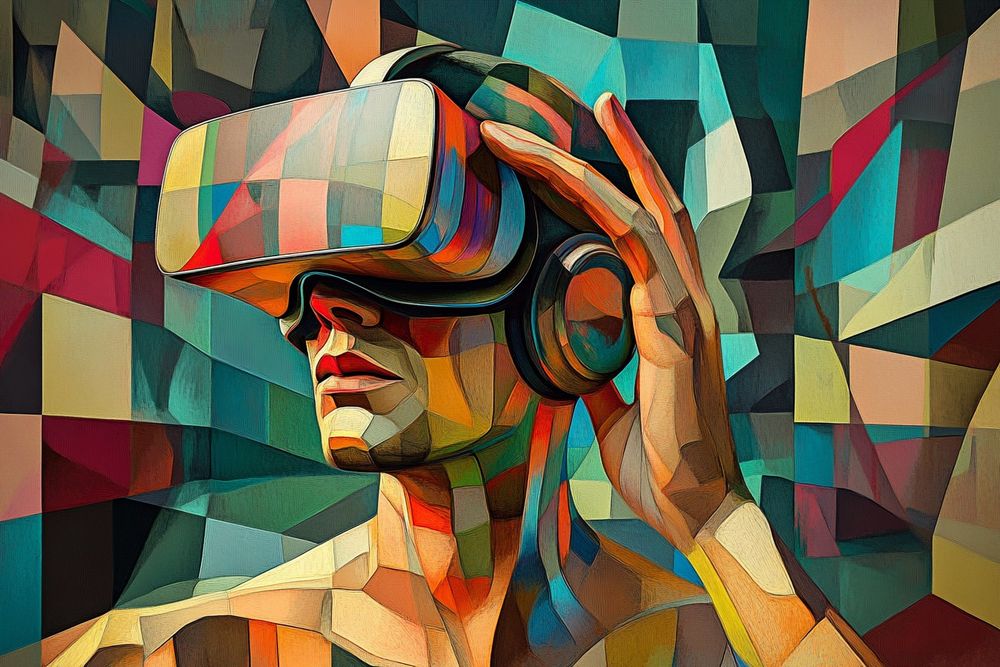Virtual reality is being used as a tool for rewriting how we remember—and with it, how we navigate business and law. A 2023 Cambridge study reveals that VR can forge memories so lifelike, they rival reality itself.
Please take a moment to read the last sentence again, because the implications are massive.
VR in Business
For businesses, VR is now a memory machine. You can onboard a new hire with a VR simulation of a tough client meeting, creating an experience that sticks, not just a lesson to forget. Or give a product demo where customers “remember” using something they’ve only tried virtually. This is already happening and it's important we all appreciate these new VR enhanced psychological capabilities.
VR also redefines connection. Virtual team-building or immersive client pitches not only impress, they resonate. When VR is used in real estate or tourism, the experience is a vivid “visit” that stays with you long after.
VR in Law
With great power comes great responsibility—and VR wields plenty of both. In legal contexts, VR opens doors to possibilities that are both exciting and troubling.
Take courtroom simulations: jurors could “experience” a crime scene in VR, gaining spatial awareness and emotional context far beyond witness testimony, static photos or videos. But what happens when those memories—artificially constructed—feel as real as the ones formed in real life? Are these memories reliable? Could they sway judgment in unintended ways?
Just last week I shared an article in my AI In Law LinkedIn group about a Florida judge using VR during a stand-your-ground hearing. Here's the video if you want to give it a watch.
The fact of the matter is that we're going to see more and more of the use of VR moving forward. In fact, I had a bit of fun writing about trying a fictitious case using similar technology in this 2019 piece (originally a 2015 blog post) titled, "How Lawyers Will Use Virtual Reality, Artificial Intelligence, Blockchains, and Sensory Devices in the CourtroomThe Challenge." If I was writing this article today, I'd 10X my reference to AI in everything discussed--especially with respect to instant analysis and real-time predictive analysis regarding "next step" questions and actions AI suggest counsel should take during trial. Also see this 2016 interview/quote and article. [links below]
False Memories
The key take-a-way is that we need to be aware of not only the benefits of this new tech but also the problem of false memories. Studies show that VR can lead users to “remember” events that never happened. In business, this raises serious concerns about liability and ethical marketing. What happens when a VR experience is so immersive it manipulates consumer perception? Could a company face lawsuits for selling a reality that never existed? These aren’t philosophical questions—they’re pressing challenges.
In the legal world, I would argue the stakes are even higher. Imagine a witness in court whose VR-fueled memory feels as real as the truth but isn’t. How do we separate genuine recall from VR-induced distortions? And if jurors rely on VR to “experience” evidence, how do we ensure what they see doesn’t create biases or false impressions? This new tech and these questions must reshape how we think about justice, ethics, and accountability in the VR age.
VR Memory as a Tool, But with Boundaries
As VR reshapes memory, its implications for self-perception and identity cannot be ignored. If a corporate training module can alter how an employee views their role, or if a marketing campaign can implant emotionally charged memories, where is the line? And who decides what’s ethical?
For businesses and legal practitioners, the challenge is twofold: embrace VR’s transformative potential while staying vigilant about its ethical and psychological risks. Clear frameworks, transparency, and regulation will be essential to ensure VR is used responsibly—whether it’s helping a business thrive or ensuring justice in the courtroom.
The Verdict
Virtual reality is not just a tool for creating immersive experiences; it’s a mechanism for shaping memory itself. For businesses and legal systems, this power is a double-edged sword—offering profound opportunities for innovation while demanding caution and accountability. Yes, the future of VR is about the technology, but it's also about the values we choose to guide its use.
Mitch Jackson | https://linktr.ee/mitchjackson
AI In Law LinkedIn Group https://www.linkedin.com/groups/14496348/?lipi=urn%3Ali%3Apage%3Ad_flagship3_pulse_read%3BDDrGkLUgQaq85BN4DLzpFQ%3D%3D
YouTube Judge using VR story https://youtu.be/JXSGWSSZ80A?si=c7nt3VxjCQPLHXfb
My post: How Lawyers Will Use Virtual Reality, Artificial Intelligence, Blockchains, and Sensory Devices in the Courtroom https://www.linkedin.com/pulse/how-lawyers-use-virtual-reality-artificial-sensory-devices-jackson/
The 2016 interview https://www.uploadvr.com/courtroom-vr/
Original article on LinkedIn https://www.linkedin.com/pulse/vrs-impact-memory-ethics-mitch-jackson-4fewc/?trackingId=jUI3FevIQ4OVQMUOojHa%2BQ%3D%3D
